130,000 Reasons I Gave The Fox Away by Arlene Radasky
In 2004 through 2008, during and after writing The Fox, I had dreams of a big publishing house picking it up and having it reach at least the top half of the New York Times best seller list. Don’t we all? Well, after a friend and I attended the 22nd Southern California Writer’s conference in San Diego, Feb. 2008, my hopes and dreams changed. The first reason was this: Just before I finished my book, I took a long walk through my local Border’s; I imagined I saw my book sitting–right there. But reality set in and as I looked around, I wondered how on earth a person walking through that huge store would be able to find my book! All the other books in the store overwhelmed even the books that were best sellers. The second reason was a writers’ conference I attended after writing The Fox. We were told if an agent or publisher chooses your book, you probably would have to spend money to hire an editor and/or a publicist. The publishing houses barely get the books of unknown authors into stores and Amazon.com. Selling them is all up to you. If you want to sell more than the ten you would sell to your family and friends, (remember Borders) then you have to work at it ceaselessly. This works well if you are retired or independently wealthy. The big publishing houses are in trouble. They can’t give out big advances to new fiction authors because they don’t usually make their money back and don’t spend money on marketing. Comments by agents and publishers on the last panel: “There will be books as long as there is paper.” “We will be here as long as you writer’s do your work. Write the best books you can, do your homework and buy books! Paperback book sales are declining.” “Send your query in with a full marketing plan, or I probably won’t accept you.” And so I decided to give my novel away as an ebook. I wanted it read. I have not been sorry at all. I had seen the surge in digital technology, the Kindle, Apple products and more and at the time of the conference, I knew it was the way of the future. I heard some say, “I love to sit and hold a book in my hand!” but you can put a good leather cover on the Kindle and sit by the fire with a glass of wine and read many books, newspapers, and magazines without putting one down to find the other. They are all right in your hands. iPods can download podcasts for our audible pleasure and I am admitting here and now, that I rarely buy paper books anymore. I have listened to many recorded/podcasted books from Podiobooks.com. Having traveled with a suitcase full of books in the past I now carry many in my iPad. I created a website and loaded a PDF of my book there first. In the...
Read MoreAuthor Spotlight: Julia Rose Grey
Always believing my upwardly slanted penmanship was an indication of some disease, I tried to correct it. I used a ruler under my pen; drew faint penciled lines; and even turned my paper 45O to the left. Nothing worked. I was stuck with thank you notes, addresses and signatures that were low on the left and traveled one-half inch uphill to the right. A nice lady administering a psychological test told me my slanted script indicated how hopeful I was about the future. She elaborated that I had a sense of responsibility for my own behavior and believed in myself. I was, she declared, an optimist. Too young and still mired in the murk left-over from childhood, I did not fully comprehend what she meant. Along the way, I learned to type so that my book reports and nonsensical short stories and poems were perpendicular to the top and bottom of the paper. In high school, my writing skills branched into parody and satire. Once I wrote a take-off of Poe’s poem The Raven in which I lamented having to do homework “evermore.” The teacher liked it for its witty twist. My parents weren’t delighted because they believed the parody indicated a flawed character – a preference of listening to my own drummer’s beat rather than conforming – a trait which remains intact to this day. In college, I was delighted with my ability to churn out term papers. With a few hours research and an afternoon of typing, I could produce a twenty-page paper. Oh the joy! No more necessity for scribbling blurry thoughts all night. Throughout all my childhood, teen years, and into adulthood, I seemed to never tire of the stories my grandmothers told me about their experiences. Although deceased for many years now, I cling to their tales as the Peanuts character Linus cleaves to his security blanket. Which brings me to today. My novels have three qualities: They are uplifting tales, loaded with humor, and steeped in yesteryear. In my first novel, Cry Before Supper, the Campbell family, parents, devoted grandmother and five children start each day with a song and, using happiness as their bond, protect the one child who suffers from a neurological condition that marks him as different. Then, in one swift stroke, irrevocable harm is inflicted upon them by a town local mired in his own bitterness. The family’s joy is shattered. Their future bleak. Except for that one ray of hope. The middle child, Annie, who has the endurance and willingness to provide for others, brings light to them once more. Her account of what happened defines the power of perseverance. My holiday novel, The Dream Catcher, is a whimsical tale about the diminutive Rupert Rumple, who is concerned about the gloom surrounding the town of Greeneville. Despite his many fears, he sets out on a journey to bring back the joy of making dreams come true. A third book is in progress. The current title is They Ran...
Read MoreCry Before Supper by Julia Rose Grey
It is the early 1960’s. The Campbell family moves from their Philadelphia row home to a larger house in a suburb where they believe they will have a better life. For a while, they do. The parents, devoted grandmother and five children start each day with a song. Bonded by their happiness, they protect the one child who suffers from an undiagnosed neurological condition from abuse and negativity. The family’s joy is their strength. Unfortunately, it is also the source of their demise. The Campbells’ cheerfulness entices a jealous neighbor — someone whom they help in his time of need — to inflict irrevocable harm upon them. Each of the family members is struck hard by this strategy none of them can fathom. The family’s future is shattered. In an instant, the happiness and closeness are gone forever. Most of the Campbells react in way that is uncharacteristic. One child does not. She realizes that family members need attention and, unwittingly, takes on the task of caring for them. The irony is, this child is the one who believes she has neither the perseverance nor the resilience to bear such a weight. The question is, will she, can she, in her own stumbling way, bring the family home once again. Author Interview What are the main themes of your book? The main theme is resilience in the face of daunting odds. The story centers on a close-knit family who experience an unspeakable tragedy. The middle child, the one with the least confidence, is the one who must struggle alone to mend the closeness that was shattered. Who or what inspired your story? My childhood inspired me to write. My grandmother was an extraordinary person who was widowed in 1932, without resources for providing for her two children. Somehow, she gave my mother both a bachelor’s and master’s degree and sent my uncle for a degree in engineering. She lived with us and I will always remember her strength and optimism. What do you like best about your primary characters? The way they protect the child with a neurological disorder that was not yet diagnosed in the early 1960s. What are their worst peculiarities? Bud is a prankster; Betsy is snotty; Annie lacks confidence and isn’t too bright; and Carolyn Rose (Crosey) tries to be naughty because she doesn’t mind the consequences and, in her view, it’s fun to pester Betsy. How does your main character evolve? Annie is the narrator. She’s a loveable child but has no faith in herself whatsoever. By the middle of the book, she is starting to figure out that she does have strength. In the end, she is has developed her own confidence. What’s the principal message you want to send to your audience? There’s no intended message. At least I didn’t write it with something I wanted the reader to discover. I wanted people to have a good read. What’s the nicest thing anyone has said about your book? Angella Graff, an accomplished...
Read MoreQueen of Deception by Trine Villemann
Queen of Deception is the first novel by Danish royal author Trine Villemann. It’s a dark and shocking tale which focuses on the death bed regrets of the Queen of a small anonymous northern European kingdom, as well as the self destructive escapades of the country’s Crown Prince Franz. Queen of Deception offers an unedifying glimpse of life behind the Palace walls, where the cancer stricken monarch, a victim of the most horrifying cruelty, has sacrificed her own happiness in order to fulfill her royal duty. Prince Franz is determined not to follow in his mother’s footsteps. Sensitive and weak Franz is a reluctant heir to the throne. After a miserable childhood, living in fear of his strict and violent father, Duke Alfonso, and ignored by his cold mother, Franz fights tooth and nail to avoid his royal responsibilities. He seeks solace in alcohol, drugs and casual sex, and alarms his minders by surrounding himself with a sometimes criminal entourage. Franz falls in love with a nurse, but his desire to marry her is thwarted by the Palace and he ends up succumbing to a highly ambitious foreign commoner called Vicki. In her final days, the Queen realises that the web of deception she has spun is about to undermine the very institution that she has sacrificed everything to protect. What are the main themes of your book? The main theme of my novel is trying to humanize the royals of today. We always see them on parade, smiling, waving, cutting ribbons and making speeches, but I am convinced that there is much more to a royal life than just that. We idolize princesses like The Duchess of Cambridge, the former Kate Middleton, and Crown Princess Mary of Denmark, to name a few, but what kind of life do these young women actually have? What kind of sacrifices do they have to make to fit their duty into their existence? Can Queens like Elizabeth II and Denmark’s Margrethe even allow themselves to be human? And who helps a Queen if her husband is abusive and violent? I wanted to create a story that explores the human being behind the royal handshake. Who or what inspired your story? I am a former Royal Correspondent for various magazines, newspapers and TV-stations and when you have that job you are, once in a while, allowed a glimpse of life behind Palace walls. Those rare glimpses got me thinking. What do you like best about your primary characters? Their humanity. At the end of the day when the Queen is lying on her death bed she is as human as you and me. The same goes for one of my other main characters, Crown Prince Franz. He is simply unable to adapt to his royal life, but wants freedom. His sensitivity, I think, is very endearing. What are their worst peculiarities? As a commoner it is perhaps difficult to comprehend why the Queen for so many years put up with her violent husband, Duke Alfonso....
Read MoreAre you Suffering from Writer’s Block? by Toni Seger
There’s nothing that frightens writers more than writer’s block, that massive impenetrable barrier that can crash down between you and the page and make your writing life untenable. The distinguished poet, Friedrich Schiller, sniffed rotting apples to overcome writer’s block. In the 18th century, it was thought this awful aroma stimulated creativity, but the most famous case of writer’s block is probably the celebrated poet Rainer Maria Rilke. Rilke waged a titanic struggle against writer’s block he only won after 13 years of struggle and depression when he produced the Duino Elegies swiftly followed by the Sonnets to Orpheus, some of the most sublime poetry ever written. If you’re afflicted with writer’s block or just flirting with it, here are my thoughts. Writing can be a very stressful activity and what most often hangs up writers is getting started on a new piece. Yes, we get to work sitting down, but there’s still plenty of heavy lifting like the intimidating sight of a blank page. Once you have something to work on, your task changes from getting it down to making it better and because you can always see ways to improve something, that task tends to come easier. The first thing you want to do is make sure your blank page doesn’t stay blank for very long because it’s the blankness that’s making you feel bad. Winston Churchill who liked to paint wrote about his initial struggle to face down an empty canvas. He approached it timidly with the tiniest of strokes so as to avoid making a mistake when his neighbor’s wife grabbed a large brush and placed several bold strokes on the canvas! The effect was immediate. Churchill broke through his inhibitions and threw himself into painting. The principle is the same with words. What most often stops writers is thinking their initial draft has to be perfect when it doesn’t even have to be intelligible. The point of a first draft is to get past the blankness even if what you write is gibberish. Never forget, nothing you write is fatal because you can always rewrite it. An initial draft is a form of free association. You start with your original idea, then let your mind wander and record anything that occurs to you. It may be dialogue or description or narration. It may be a reference to something you read somewhere else. It may be a news item or a casual conversation you overheard. It could be anything. Whatever it is, you’re intrigued so let your mind play with it and write down whatever occurs to you. At this point, don’t try to control the process. Just follow a thought wherever it leads. Chances are, something more will occur to you. So, write it down. Don’t expect to be in complete control of the process until you’ve roughed out an entire draft and are ready to refine and polish. Control also plays a role when you’re fleshing out ideas, improving syntax, reworking words so...
Read More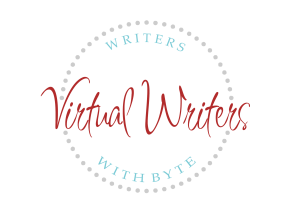



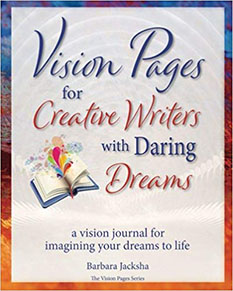
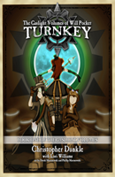
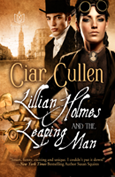
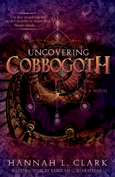
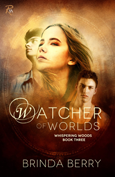
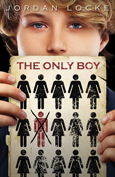
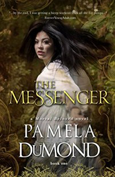
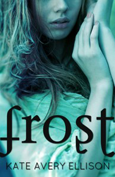
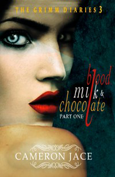
Follow Me